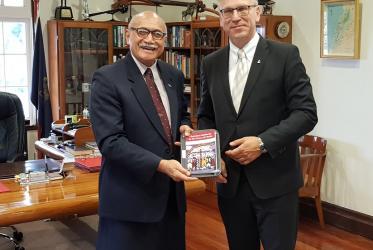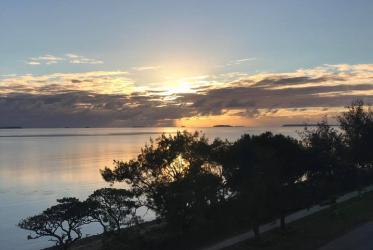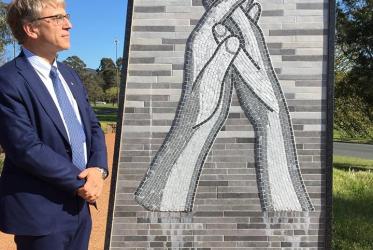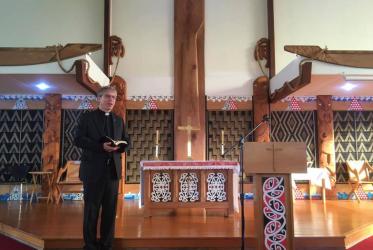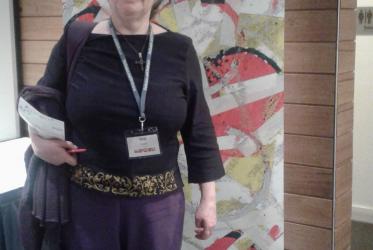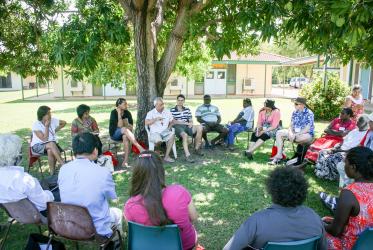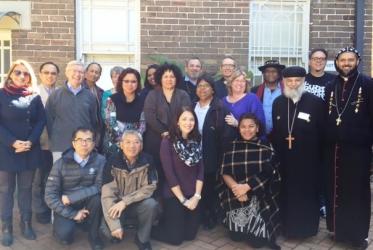Displaying 61 - 80 of 99
Hopes shared in Tonga, where dawn starts first
06 August 2017
A voice for peace from Down Under
10 July 2017
WCC mourns the death of Polynesian nuclear fighter John Doom
28 December 2016
WCC general secretary visits Aotearoa New Zealand
10 October 2016
Indigenous spirituality: can it transform injustice into justice?
01 September 2016
New Executive Committee members elected in Trondheim
28 June 2016
In wake of Fiji cyclone, WCC extends prayers, condolences
24 February 2016
"I hit the ground running": Katalina Tahaafe-Williams
16 February 2016
WCC Executive Committee speaks out on migrant crises
12 June 2015
